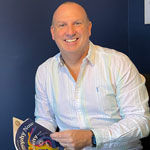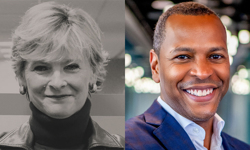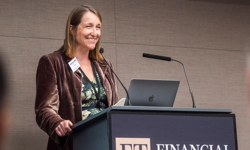
Ahead of my write-up in InPublishing’s Nov/Dec issue of our roundtable (‘the technical challenges and opportunities facing publishers’, sponsored by PCS), I thought I would give you another little taster.
Part of the morning’s conversations was taken up discussing the merits of that cutting edge, outer frontier technology that is, err… email. Perhaps seen in some youth markets as something one’s uncle does, email remains a key pillar of B2B and academic publishing.
Technical advances have led to much better rendering of emails, so they look a lot better than they used to and GDPR (which, incidentally, got a big thumbs up) has encouraged publishers to improve the quality and relevance of email content and its targeting, as well as highlighting to commercial clients the value of our super-engaged audiences.
For publishers that do a lot of email marketing, high bounce rates – once seen as a bad thing – but long page dwell times, show that emails are doing their job of driving traffic to specific articles.
Increasingly, also, email is becoming a publishing medium in its own right with some articles only appearing in email newsletters. Subject-specific and build-your-own curated email newsletters are also growing in popularity.
Some publishers are also finding success in allowing readers to ‘follow’ (and be alerted by email) particular topics and, especially, authors.
Other trends include more intelligent use of triggered email alerts (not just for ‘abandoned carts’) and smaller lists as publishers clean up their files of gone-aways and probably-were-never-theres. This list shrinkage has caused some misplaced angst amongst marketers, but hey, chin up:- they were never really there in the first place and at least your open rates will go up!
(Thank you, again, to John Barnes, Robin Barnes, Giles Bentley, Peter Dakin, Matt Hobley, Paul Hood, Jeremy Macdonald, Adrian Poole, Richard Sacré and Simon Weare for sharing their expertise.)












